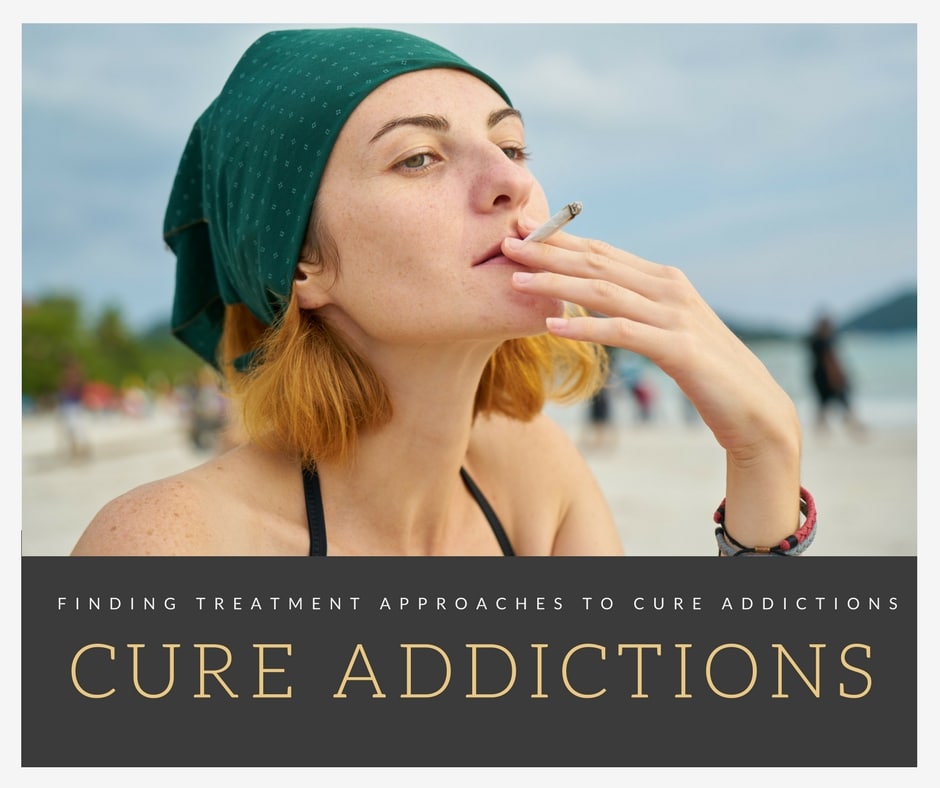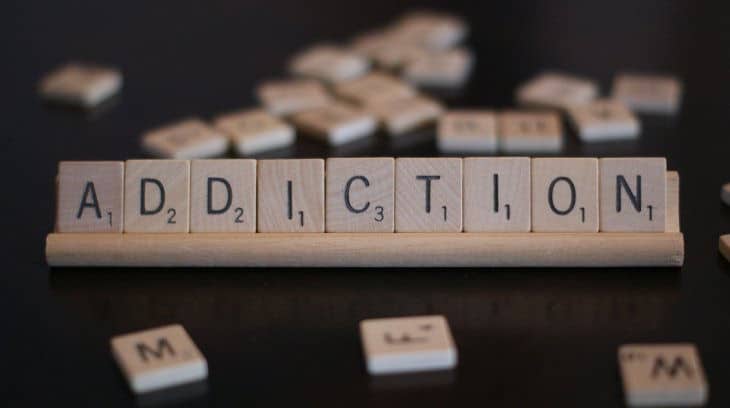Finding Causes and Treatment Approaches To Cure Addictions
 Addiction can take place in just about any form. From physical dependence associated with withdrawal symptoms to a full-blown addiction disorder, behavioral addiction can be synonymous with negative consequences. This is a compulsive nature of behavior often a sign of a deeper problem.
Addiction can take place in just about any form. From physical dependence associated with withdrawal symptoms to a full-blown addiction disorder, behavioral addiction can be synonymous with negative consequences. This is a compulsive nature of behavior often a sign of a deeper problem.
The actions and symptoms associated with addiction can provide psychological rewards or physiological benefits. Addiction can continue for any length of time without treatment and intervention. Behavioral addictions include gaming, food, exercise, shopping, gambling, exercise, substance abuse, love and sex, and more.
The compulsive behavior is termed as an addiction only when the person struggles with physical or mental health issues as a result of the behavior and is unable to stop. The individual should experience an impairment in functioning as well as personal and professional relationships.
Other negative consequences that directly cause extreme outcomes such as losing a job or being forced to bankruptcy on account of a gambling or shopping addiction are also important. The person should be unable to stop the behavior despite negative consequences. Treatment can be a powerful tool to address these issues. So can knowing the causes and sources that impact the addiction.
Many people engage in different behaviors across the day, each with their own results and outcomes. Making choices about the food you eat, the clothes you shop for, the hobbies and recreations you opt for is part of every day life.
When the behavior is impulsive in nature, and results in mental and physical health problems the person is unable to stop, it is called as an addiction. Along with mental and physical toll, an addict may also face financial and legal problems. When behavior becomes an addiction, Whether each behavior becomes an addiction depends on the impact it has on the functionality of the person.
Problem gambling or a gambling disorder, for example, is an addiction that can engager or compromise a person’s life. It can even lead to undesirable outcomes such as bankruptcy. When gambling becomes an addiction, there are huge losses such as legal problems, divorce, destroyed careers and more. Another crucial concern is that the addiction is something the person feels a great difficulty in overcoming.
Getting a high from compulsive behaviors, they engage in an activity such as eating or smoking to the point of excess. Along with this, people addicted to trigger may develop a tolerance for this. As a result, they may require more of that particular behavior to get a high. Visibly, the signs of addiction may not be apparent. For example, those struggling with food addiction need not necessarily be obese, they could have a normal BMI too. The element of risk is what may even create a high in the addict. Addiction to fantasy and escape may be elements here too.
Identifying Causes and Sources

Photo By: Dana Le/ CC BY
Locking onto when the behavior has turned it a problem, can be tough. It can be difficult for the person to recognize when things have made the transition from a mere action to a full blown addiction that must be diagnosed and treated.
Programs and Steps in De-Addiction
Many programs that treat addiction focus on identifying and working on the causes. An effective de-addiction program addresses the following:
Detox Support
When the source of the addiction is removed, some individuals may feel panic, anger, outburst, and agitation. Growth and healing moving forward is only possible through support during this transitional period.
Diagnosis and Evaluation
A thorough diagnosis and evaluation procedure is needed to identify co-occurring substance abuse issues and mental health problems that also may occur along with the addiction. These disorders and co-morbid conditions may be impacting or even causing behavioral addiction.
Treatment
A combination of therapies is chosen for diagnosis and evaluation based on personal settings and comfort levels. Goals for recovery are identified for the future as well.
Family Support

Photo by: Airpix/ CC BY
It is critical for loved ones and family members to engage in their own processes of healing. Family members can assist in the recovery of loved ones and also engage in support groups designed for them.
Choosing a range of therapies involves identifying the right causes and sources. If the client is strong and stable, de-addiction is a relatively straightforward process. In case substance abuse or addiction disorder is identified, it needs to be evolved as part of the overall treatment plan.
For clients, the co-occurrence of multiple addictions can create a real problem. Identifying causes and sources is a critical step towards treatment. Moreover, each addiction type may have signs, impacts and symptoms that vary across age groups, genders and populations as well as factors like social media usage patterns. Medication may not work in the treatment of some process addictions that co-occur with other mental health disorders. Addiction can take place in different ways. Many different stimuli can be a source of addiction. Serious addiction problems can impact health, finances, relations and nearly every other aspect of life.
Addiction can even impact the brain, with a loss of the ability to persistently avoid addiction sources. Minimize the extent to which addiction harms your life’s quality by locating the sources and causes that influence addiction.
Overcoming Addiction
Addictions can be overcome by locating the causes or triggers. While the genetic and biological factors contributing to addiction are many, choices and options when it comes to decision making are also an influential factor. This habit may be hard to kick and confronting and overcoming addiction requires acknowledgment of that.
Acknowledging that you have an addiction problem can enable you to take the first steps towards treatment. People with addiction may feel they have a problem, and sense that behavior is unhealthy, but they need to be aware of the extent of the problem as well. Confrontations such as interventions can be a turning point towards treatment for the addict.
Quitting cold turkey is not for everybody. If you are suffering from a serious addiction, understanding its roots and causes can play an important role in helping one deal with withdrawal symptoms. Treatment programs create awareness about the causes of addiction and how you can avoid being impacted by these. The addiction treatment should be comprehensive.
One may feel that they don’t want to deal with the addiction. Discussing the causes of addiction as well as the consequences can help. Self-help groups and social support communities are focused on sharing feelings and experiences. The very purpose of therapy or counseling is a purpose oriented, diagnostic intervention designed to help you understand the causes and sources of addiction better. Effective therapy can be carried out in sessions with therapists or family counsellors. Group therapy is also used to treat addiction. Addiction is a relapsing disease and therapy as well as support can help on the path to recovery.
Cause and Effect: Understanding the Link
Understanding the addiction in its totality means checking when there is a relapse and you may return to unhealthy behavior. The urge to have just another shot at the addiction may arise. Learning how to fight the triggers involves understanding them. Taking a moment to internally handle the choices and decision-making process, by unearthing the cause that drives the addiction.
Another technique that works well is to distract one’s self with pursuits that are positive. Rather than commencing the day with unhealthy habits that lay the foundation for the addiction, start your day with a positive one. Don’t use intense energy obsessively to pursue the source of addiction. Instead channelize it into another area.
Avoiding Triggers
Another important step that works well is to understand which settings and causes initiative addictive behaviors and how you can overcome these. Find healthy places to spend time and new people to make for a healthier community in which to overcome your addiction. Once you have a list of situations that promote addiction, keep these in mind as you step forward to deal with behaviors associated with a particular addiction.
Regain Control
Another important step in understanding the causes of addiction is to regain control. Others may have gone through similar addictions and overcome them. Understanding your causes and accessing the resources to help to successfully battle addiction is the key here. Getting over addiction is a long process. Taking hold of control is all about knowing what to do if you have a relapse and knowing where to go for help. Overcoming addiction can be tough, but pulling through is a reward in itself.
Whether you are dealing with substance abuse disorder or shopping addiction, the most important thing is to admit you have the problem. Plans for quitting or seeking help come from a thorough understanding of your situation.
How Addiction Damages: Understanding the Causes
Place the harmful effects of addiction as your prime consideration on paper. Penning the causes will help you to brainstorm better. Addiction may be affecting physical health or take a toll on your medical state. More so, it may hurt you mentally as well. Addiction can also take an emotional toll. Addiction may be impacting your relations with others or even taking a financial toll.
Studying which positive changes you want post-addiction can only happen when you consider the causes leading to addiction. To commit to quitting, you need to have solid reasons to substantiate your initiative. The next step is to set a date for quitting so that you are mentally and physically prepared.
A critical step in seeking personal and professional support is to locate the causes driving the behavior. Research support groups designed to help people with the kind of addiction you have. Finally, seek a good mental health professional who can help you through the ups and downs of quitting addiction. Identifying your triggers is important in this context.
Common Triggers
It all depends on the nature of your addiction. If you are struggling with an alcohol addiction, bars may be a problem. A casino or a pack of cards can trigger a gambling addiction. Food can act as negative stimuli for those obsessed with eating. Stress is a cause for many addictions. Social situations or individuals can also be your trigger, for example, your drinking buddy at the bar for those battling alcohol addiction.
Take your addictive habit to task. For most, it is easy to quit. All you need to do is take it slow. Use a method of successive approximations to gradually move to an addiction-free life.
Another common trigger can be the environment. So, if you are struggling with alcohol dependence and abuse, try to remove the bottles from your home, work place and even your car. Opt for those objects which make you feel calmer and more in control. For example, those with food addiction should try to distract themselves by engaging in exercise or concentrating on de-addiction books and DVDs.
Exercise releases feel-good endorphins which leave you on a high. It could even lessen withdrawal effects during de-addiction. Check the factors that make you steer clear of triggers and adhere to these.
Rationalization or denial are defense mechanisms. Remember to shelf these and quit rather than staying addicted. Don’t let a relapse follow and take each day at a time to ensure freedom from this life threatening addiction.
How to Identify Causes and Triggers
Causes and triggers can be physical or psychological. Physical triggers include tightening the stomach, nervous tension, agitation, sweating and other unpleasant sensations. Psychological triggers can include memories of how good the drug was, recalling times in the past when the drug or addictive behavior was engaged in, planning how to get back to those addictive behaviors and more.
Conclusion
Identifying these triggers is an important first step in battling addiction. Once the causes and sources have been identified, it is time to take the de-addiction plan to the next level. Resisting triggers, identifying and dealing with causes and reinforcing positive and healthy actions form the core of this. De-addiction is a tough process, but with determination and a strong will, you can get there!
Comments
Post a Comment